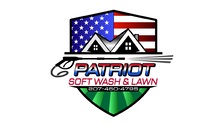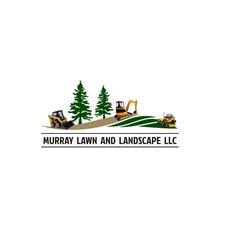
Get matched with top lawn irrigation specialists in Lamoine, ME
Enter your ZIP and get matched with up to 5 pros
Need a pro for your lawn irrigation project in Lamoine, ME?
Verified Reviews for Lawn Irrigation pros in Lamoine, ME
*The Angi rating for Lawn Irrigation companies in Lamoine, ME is a rating based on verified reviews from our community of homeowners who have used these pros to meet their Lawn Irrigation needs.
*The HomeAdvisor rating for Lawn Irrigation companies in Lamoine, ME is a rating based on verified reviews from our community of homeowners who have used these pros to meet their Lawn Irrigation needs.
Last update on December 09, 2025
Find Lawn irrigation specialists in Lamoine
Fleming Construction, Inc
Fleming Construction, Inc
Fleming Construction, Inc has been in business for 33 years, giving the highest quality service in the Eastern Maine area. Safety is our #1 priority, and we are fully insured. We are a small, family owned and operated business. DEP certified and State certified for septic systems and environmental protection. Free estimates. We also sub-contract with reputable companies in the area.
Fleming Construction, Inc has been in business for 33 years, giving the highest quality service in the Eastern Maine area. Safety is our #1 priority, and we are fully insured. We are a small, family owned and operated business. DEP certified and State certified for septic systems and environmental protection. Free estimates. We also sub-contract with reputable companies in the area.
DePaola Landscaping Services
DePaola Landscaping Services
DePaola landscaping is a small company with plenty of knowledge and experience in what we do. Billing and payment can be discussed and negotiated before any work takes place.
DePaola landscaping is a small company with plenty of knowledge and experience in what we do. Billing and payment can be discussed and negotiated before any work takes place.
Lockharts Lawncare and Critter Removal
Lockharts Lawncare and Critter Removal
Lockharts lawncare and critter removal is by far maines most affordable and dependable landscaping and nuissance animal removal company.
Lockharts lawncare and critter removal is by far maines most affordable and dependable landscaping and nuissance animal removal company.
THE HORTICULTURAL INTUITIVE
THE HORTICULTURAL INTUITIVE
THE HORTICULTURAL INTUITIVE IS A FAMILY OWNED LANDSCAPING COMPANY LOCATED IN COASTAL MAINE.
THE HORTICULTURAL INTUITIVE IS A FAMILY OWNED LANDSCAPING COMPANY LOCATED IN COASTAL MAINE.
FARLEY & SON LANDSCAPING, INC.
FARLEY & SON LANDSCAPING, INC.
FAMILY OWNED & OPERATED. ADDITIONAL EMAIL: [email protected].
FAMILY OWNED & OPERATED. ADDITIONAL EMAIL: [email protected].
The Lamoine, ME homeowners’ guide to lawn irrigation services
From average costs to expert advice, get all the answers you need to get your job done.

Discover drip irrigation system cost estimates, key price factors, and ways to save. Get transparent pricing to plan your home irrigation project confidently.

If your sprinkler system isn’t working, it may be time for a new pump. Find out sprinkler pump replacement costs with this guide.
 •
•Find out the average sprinkler system repair cost, what impacts pricing, and how to save. Get transparent estimates to plan your sprinkler repair project.

Do you truly know how long to run sprinklers in your yard? We explore the general guidelines of lawn watering and the factors that affect its frequency.

Keep your lawn and garden lush and healthy without wasting water with our expert irrigation tips, from when to water, to water conservation ideas.

Irrigation can help your lawn, flower bed, and veggie gardens thrive. But what is irrigation? Follow this guide to learn how irrigation works.
- Otis, ME Lawn irrigation specialists
- Trenton, ME Lawn irrigation specialists
- Ellsworth, ME Lawn irrigation specialists
- Eddington, ME Lawn irrigation specialists
- Bradley, ME Lawn irrigation specialists
- Dedham, ME Lawn irrigation specialists
- Holden, ME Lawn irrigation specialists
- Milford, ME Lawn irrigation specialists
- Old Town, ME Lawn irrigation specialists
- Franklin, ME Lawn irrigation specialists
- Orono, ME Lawn irrigation specialists
- Brewer, ME Lawn irrigation specialists
- Veazie, ME Lawn irrigation specialists
- Glenburn, ME Lawn irrigation specialists
- Hermon, ME Lawn irrigation specialists
- Bangor, ME Lawn irrigation specialists
- Greenbush, ME Lawn irrigation specialists
- Sullivan, ME Lawn irrigation specialists
- Orrington, ME Lawn irrigation specialists
- Hancock, ME Lawn irrigation specialists
- Cherryfield, ME Lawn irrigation specialists
- Surry, ME Lawn irrigation specialists
- Bucksport, ME Lawn irrigation specialists
- Orland, ME Lawn irrigation specialists
- Gouldsboro, ME Lawn irrigation specialists
- Kenduskeag, ME Lawn irrigation specialists
- Levant, ME Lawn irrigation specialists
- Newburgh, ME Lawn irrigation specialists
- Hampden, ME Lawn irrigation specialists
- Hudson, ME Lawn irrigation specialists
- Roofing in Lamoine
- Electrical in Lamoine
- Tree Service in Lamoine
- Kitchen And Bath Remodeling in Lamoine
- Driveways in Lamoine
- Septic Tank in Lamoine
- Cleaning in Lamoine
- Siding in Lamoine
- Lawn And Yard Work in Lamoine
- Exterior Painting in Lamoine
- Flooring in Lamoine
- Excavating in Lamoine
- Fencing in Lamoine
- Pressure Washing in Lamoine
- Foundation Repair in Lamoine
- Garage Doors in Lamoine
- Pest Control in Lamoine
- Home Builders in Lamoine
- Leaf Removal in Lamoine
- Insulation in Lamoine
- Concrete Repair in Lamoine
- Garbage Collection in Lamoine
- Contractor in Lamoine
- Stone And Gravel in Lamoine
- Handyman Service in Lamoine
- Landscaping Hardscaping And Pavers in Lamoine
- Windows in Lamoine
- Drywall in Lamoine
- Chimney Sweep in Lamoine
- Roof Ice And Snow Removal in Lamoine
- 🌱 "Mow a small front yard"
- 🛠 "Fix a leaking pipe under the sink"
- 🏠 "Repair shingles on an asphalt roof"


